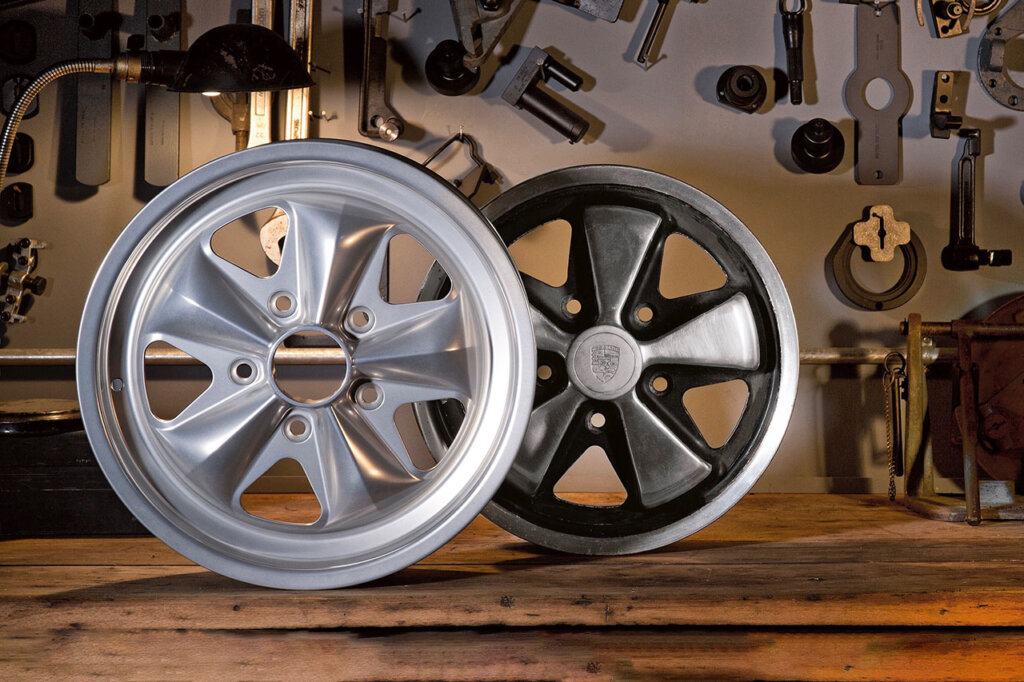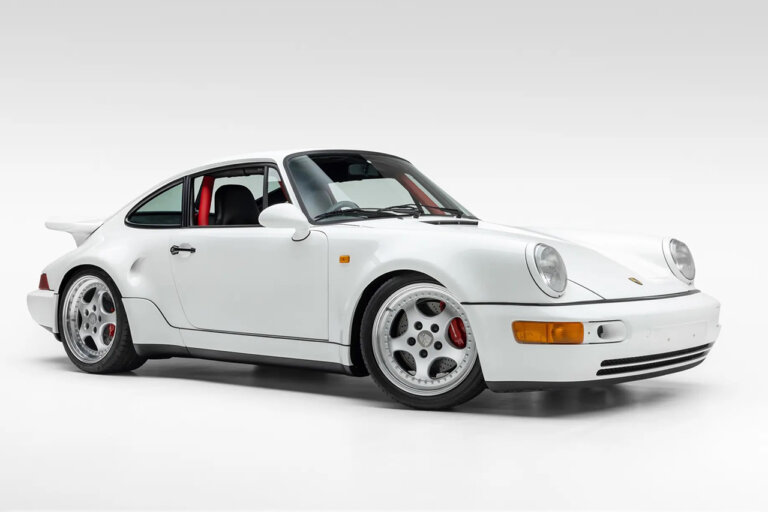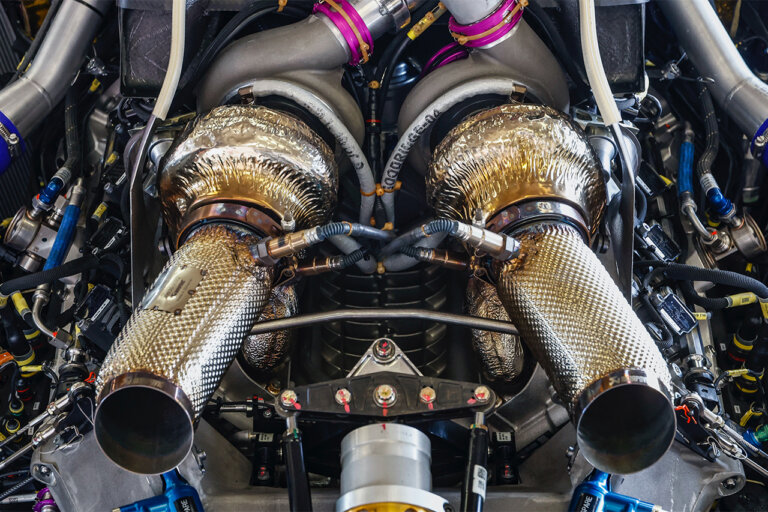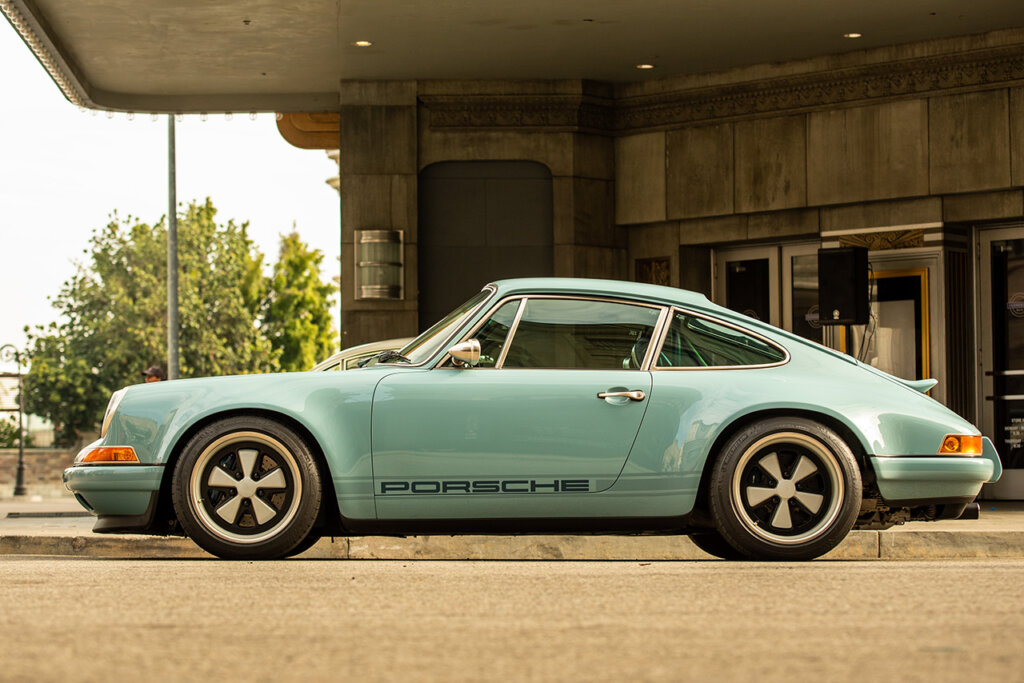
Source: Motofutura
Fuchs Felge, also known as Fuchs Wheels, is a German wheel manufacturer notably known for producing high-quality wheels for a variety of vehicles, including sports cars, luxury cars, and race cars. In this article, we will explore the history of Fuchs Felge and how it became one of the leading wheel manufacturers in the world.
Fuchs roughly developed and began production of the cloverleaf wheel in the early 1960s. The design was a significant improvement over the conventional wire-spoked wheel, which was prone to failure due to its inherent weakness and susceptibility to damage. Fuchs Felge produced wheels for a variety of German car manufacturers, including Porsche and Volkswagen. However, it was the partnership with Porsche that would help the company achieve significant success.
When it comes to sports cars, few have made a more lasting impression than the Porsche 911. In the early 1960s, Porsche was looking for a lightweight wheel for its new 911 model. The company turned to Fuchs Felge, and together, they developed the iconic Fuchs wheel design that would become synonymous with the Porsche 911. Since becoming an icon in the world of sports cars, with a distinctive design and an exceptional driving experience, the 911 has stayed largely consistent over the years. Its technology has evolved considerably, notably the Fuchs clover leaf wheel, a key component of the 911’s performance and aesthetics.

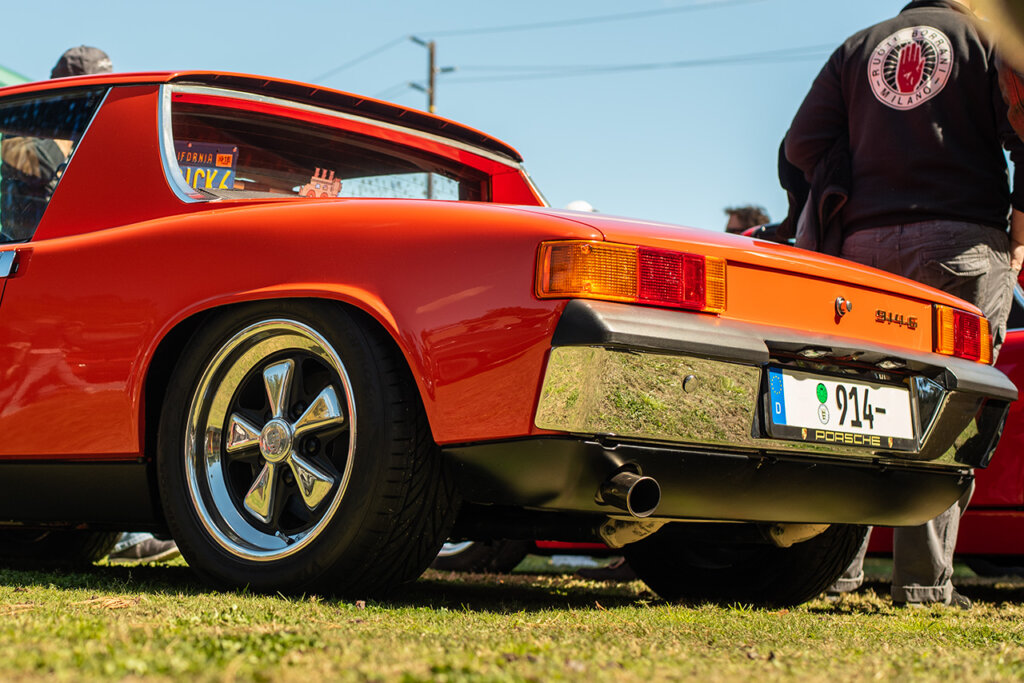
Source: Motofutura
The original Fuchs wheel was a one-piece, forged aluminum design that weighed significantly less than other wheels on the market. This helped to improve the performance and handling of the Porsche 911, making it a favorite among drivers and enthusiasts alike.
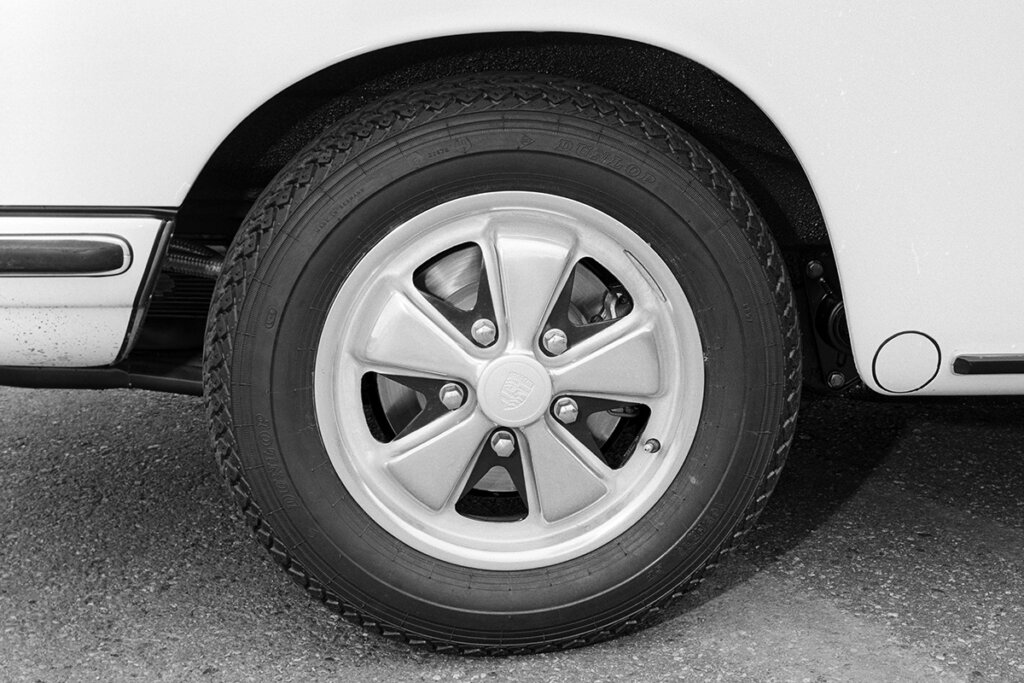
Source: Porsche
The Fuchs wheel design became so popular that Porsche began offering it as an option on all of its models, including the 914, 924, and 944. The wheels were also used on Porsche race cars, including the legendary 917.
The Fuchs clover leaf wheel was first introduced in 1966 as an optional upgrade for the Porsche 911. Designed by Otto Fuchs KG, a German company specializing in high-performance automotive components, the wheel was notable for its distinctive five-leaf design, which was intended to improve the car’s overall performance and handling.

The Fuchs clover leaf wheel also featured a unique rim design, with a raised lip that extended beyond the tire. This lip helped to keep the tire securely in place, even during hard cornering and high-speed driving, which further enhanced the car’s handling and stability.

The Fuchs wheel was initially only available as an option for the Porsche 911S, but it quickly became a popular choice among enthusiasts and racing teams. In fact, the Fuchs wheel soon became the standard wheel for the Porsche 911, and it remained so for many years.
The Fuchs wheel’s design also helped to improve the 911’s cooling system. The wheel featured large vents that allowed air to flow through and cool the brakes and other components. This was particularly important for the 911, as its rear-engine design made it prone to overheating.

In addition to producing wheels for Porsche, Fuchs Felge began to work with other high-end car manufacturers, including Mercedes-Benz, BMW, and Audi. The company also expanded its product line to include wheels for off-road vehicles and motorcycles and also working with notable car platforms over the years like the Volkswagen Beetle. In the 1970s, Fuchs wheels were a popular aftermarket option for Beetle owners who wanted to upgrade the look and performance of their cars. Fuchs wheels were also used on other Volkswagen models of the era, such as the Karmann Ghia and the Type 2 (VW Bus).
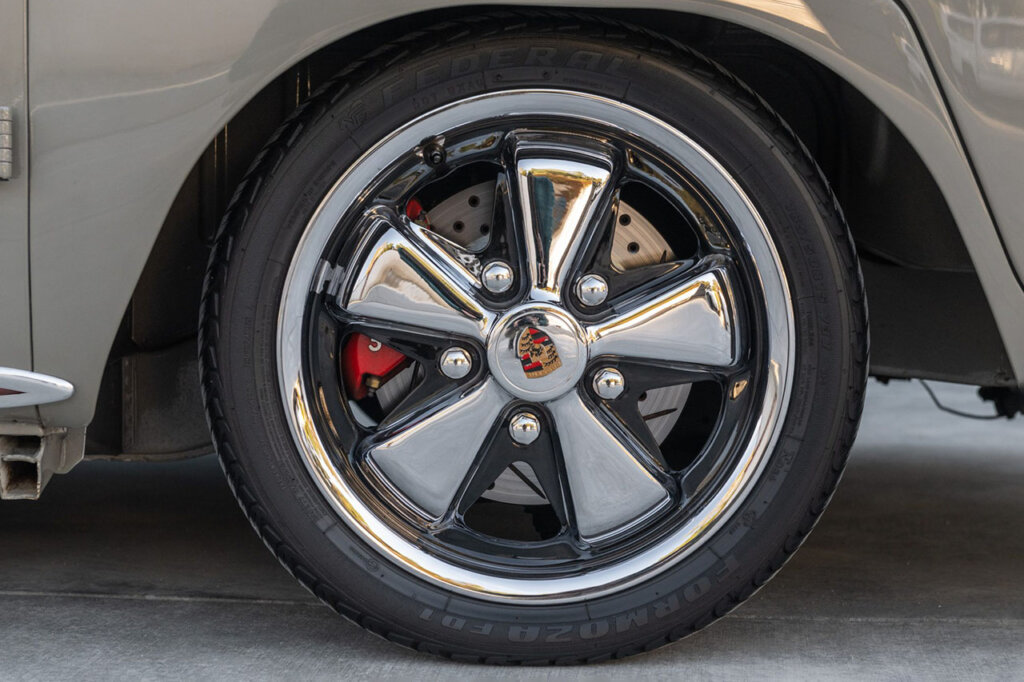

Source: Bring-A-Trailer
The Fuchs clover leaf wheel is a prime example of how small design details can have a significant impact on a car’s performance and aesthetics. While it may seem like a small detail, the Fuchs wheel played a crucial role in the success of the Porsche 911 and helped to establish the car’s reputation.
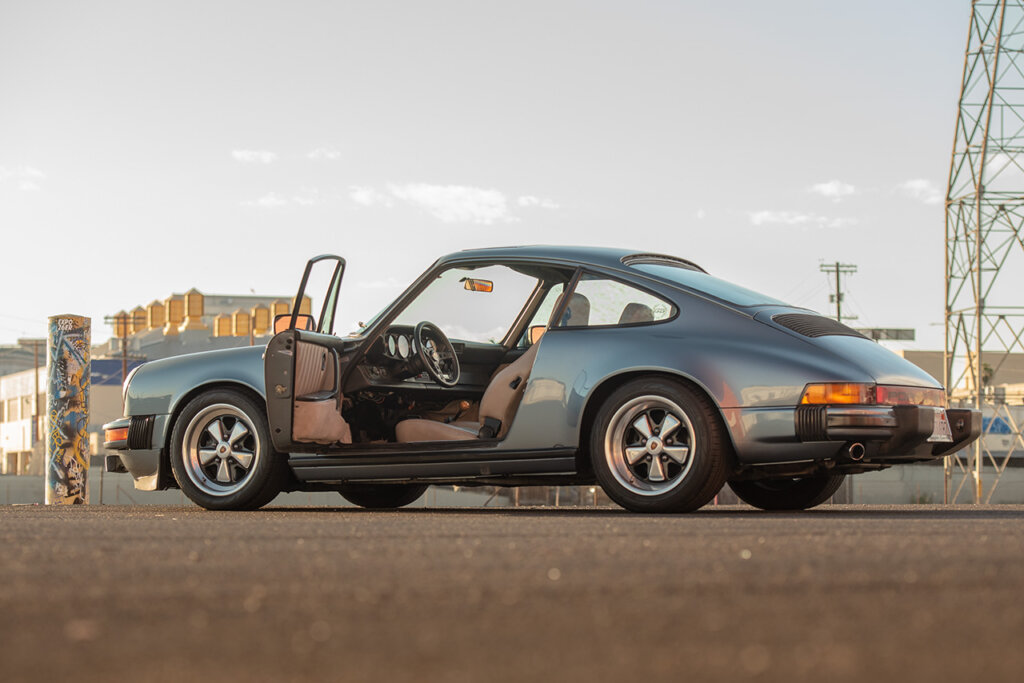

In fact, the Fuchs wheel has become something of a collector’s item, with prices for original wheels reaching into the thousands of dollars. This is a testament to the wheel’s enduring popularity and its status as a true automotive icon.
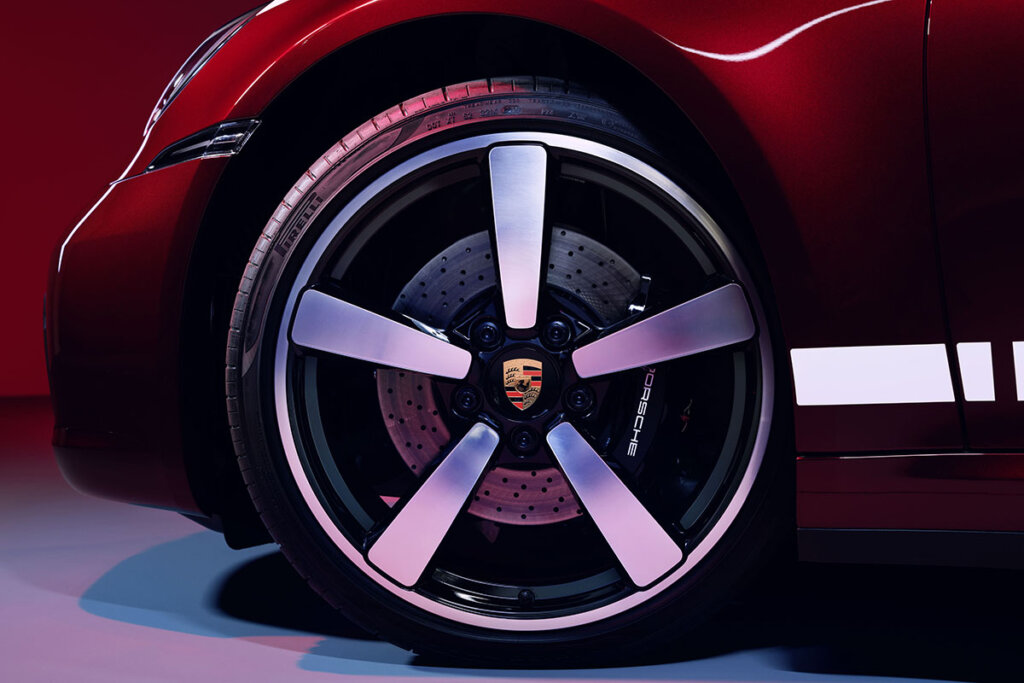

Source: Porsche
Today, the Fuchs clover leaf wheel remains an enduring symbol of Porsche’s commitment to engineering excellence and performance. While the wheel is no longer produced for new cars, it is still highly sought after by Porsche enthusiasts and collectors around the world.
